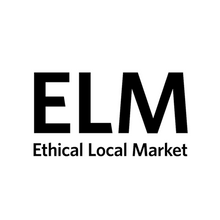· By Switch Support
Ethical Sourcing: A Guide to Responsible and Sustainable Business Practices
As environmental awareness grows, consumers are increasingly seeking products that align with their values. In fact, 88% of consumers want brands to help them make a difference, according to a study by Futerra. Ethical sourcing has become more than a buzzword—it's now a critical business practice that allows companies to meet this demand by ensuring that every step in their supply chain respects human rights, fair labor practices, and environmental sustainability. Ethical sourcing is not only about delivering quality products but also about ensuring that these products are created in a way that positively impacts communities and the planet.
This article explores what ethical sourcing entails, why it’s important, and how businesses can implement it to benefit both their operations and the communities they serve.
What Is Ethical Sourcing?
Ethical sourcing refers to the responsible and sustainable organization of a company’s supply chain, ensuring that goods and services are obtained in ways that respect labor rights, protect the environment, and promote transparency. The goal is to verify that raw materials and production practices meet specific ethical standards and support the health and safety of all workers involved. Companies that engage in ethical sourcing take responsibility for the impact of their suppliers, which includes ensuring fair wages, humane working conditions, and minimal environmental harm.
For example, a company manufacturing t-shirts might choose to work with a supplier who uses organic cotton rather than conventional materials like polyester, which can harm the environment. Such a decision not only demonstrates a commitment to sustainability but also aligns with consumers’ growing interest in eco-friendly products.
Why Ethical Sourcing Is Important
Ethical sourcing serves as a foundation for responsible business practices, influencing the environmental and social impact of a company’s products and shaping its public image. The benefits of ethical sourcing go beyond compliance; they encompass brand reputation, consumer trust, employee satisfaction, and long-term sustainability. Here are some key reasons why ethical sourcing is essential:
1. Protecting Employees and Reducing Exploitation
Ethical sourcing ensures fair labor practices and safe working conditions, preventing unethical practices like child labor, unsafe working hours, and hazardous environments. This commitment to employee well-being helps attract skilled workers and maintain a productive, motivated workforce.
2. Safeguarding the Brand's Reputation
Adopting ethical sourcing practices helps companies avoid greenwashing and other misleading marketing tactics by providing genuine proof of sustainability. This transparency builds consumer trust and differentiates the brand from competitors, positioning it as a leader in corporate responsibility.
3. Reducing Environmental Impact
By choosing sustainable materials and practices, companies can significantly decrease their carbon footprint. Ethical sourcing promotes the use of eco-friendly materials and renewable resources, helping to mitigate environmental damage and contributing to global climate goals.
4. Responding to Consumer Demand
Today’s consumers are increasingly willing to pay a premium for products that align with their values. Ethical sourcing caters to this demand, helping companies attract loyal customers who prioritize sustainability and ethics in their purchasing decisions.
Ethical Sourcing in Practice
To establish ethical sourcing, companies must develop clear policies and procedures that guide their purchasing decisions. Here are some core practices involved in creating an ethical sourcing program:
1. Supplier Audits and Transparency
Regular audits of suppliers help ensure compliance with labor laws, environmental regulations, and ethical standards. Transparency is also essential; by openly sharing sourcing practices, supplier identities, and materials’ origins, companies foster accountability and build consumer trust.
2. Fair Trade Partnerships
Partnering with fair trade suppliers, especially for goods like coffee, cocoa, and textiles, ensures that workers are paid fair wages and have safe working conditions. Fair trade certification programs can help companies identify responsible suppliers and guarantee that the supply chain supports fair labor practices.
3. Supporting Community Development
Choosing suppliers that invest in local communities—for example, by providing education, healthcare, or environmental conservation efforts—reflects a commitment to social responsibility. Companies that prioritize these suppliers contribute positively to the communities they impact.
4. Environmental Sustainability
Ethical sourcing also involves reducing environmental harm by selecting suppliers who minimize waste, use sustainable materials, and reduce pollution. For example, materials like organic cotton, hemp, and recycled fabrics are environmentally friendly alternatives to conventional materials.
5. Continuous Improvement and Policy Updates
Ethical sourcing is not a one-time effort; it requires continuous evaluation and adaptation. Companies should regularly assess and update their sourcing policies, addressing any ethical risks in their supply chains and seeking opportunities to improve sustainability.
Ethical Sourcing Terminology: What’s the Difference?
While ethical sourcing is a broad concept, it is often confused with related terms like fair trade, cruelty-free, and organic. Here’s a quick overview of each:
- Fair Trade: This term refers to products that meet specific standards for fair wages, safe working conditions, and community support. Fair trade-certified products are labeled, making it easy for consumers to identify.
- Cruelty-Free: Primarily used in the cosmetics industry, cruelty-free products are those not tested on animals. However, cruelty-free does not mean vegan, as these products may still contain animal-derived ingredients.
- Organic: Organic certification, especially for food, guarantees that products were grown without synthetic pesticides or genetically modified organisms. Unlike ethical sourcing, organic certification does not address labor practices or animal welfare.
Implementing Ethical Sourcing in Your Business
For companies new to ethical sourcing, creating an effective policy begins with a commitment to transparency, quality, and community engagement. Here are a few steps to guide the implementation of ethical sourcing:
1. Assess Your Current Supply Chain
Begin by evaluating the ethics and sustainability of your current suppliers. Identify any areas of risk, such as environmental impact or labor practices that do not meet ethical standards.
2. Define Ethical Standards
Establish clear criteria for what ethical sourcing means to your business, including specific standards for labor practices, environmental sustainability, and fair trade.
3. Collaborate with Ethical Suppliers
Partner with suppliers who align with your values and are transparent about their practices. Choose suppliers that are certified by reputable programs like Fairtrade or the Forest Stewardship Council.
4. Educate Your Employees and Consumers
Make sure employees understand the importance of ethical sourcing and encourage them to support it in their roles. Additionally, educate consumers by providing information on your sourcing practices and the benefits of ethical sourcing.
5. Monitor and Adapt Your Policy
Ethical sourcing is an evolving process. Regularly audit suppliers, update policies to reflect industry standards, and remain flexible in adapting to new ethical challenges and opportunities.
The Broader Impact of Ethical Sourcing
Ethical sourcing goes beyond the company itself, benefiting society and the environment. Companies that commit to these practices contribute to a healthier planet, foster fair labor conditions, and inspire others to prioritize sustainability. Ethical sourcing also promotes local economies by supporting small businesses and community development efforts, creating a positive feedback loop that benefits everyone involved.
In conclusion, ethical sourcing is not just an option; it is a necessary approach for companies striving to remain relevant in a world where consumers, investors, and communities value corporate responsibility. As businesses adopt ethical sourcing practices, they can create a lasting impact—building trust with customers, protecting the environment, and ultimately ensuring a more sustainable future for all.
References
IBM. “Ethical Sourcing.” *IBM*, https://www.ibm.com/topics/ethical-sourcing. Accessed 8 Nov. 2024.
Sedex. “What Does Ethically Sourced Mean?” *Sedex*, https://www.sedex.com/blog/what-does-ethically-sourced-mean/. Accessed 8 Nov. 2024.
Greenly. “Ethical Sourcing: Definition, Goals and Keys for Implementation.” *Greenly*, https://greenly.earth/en-us/blog/company-guide/ethical-sourcing-definition-goals-and-keys-for-implementation. Accessed 8 Nov. 2024.
Townsend, Solitaire. “Consumers Want You to Help Them Make a Difference.” *Forbes*, 21 Nov. 2018, https://www.forbes.com/sites/solitairetownsend/2018/11/21/consumers-want-you-to-help-them-make-a-difference/. Accessed 8 Nov. 2024.





